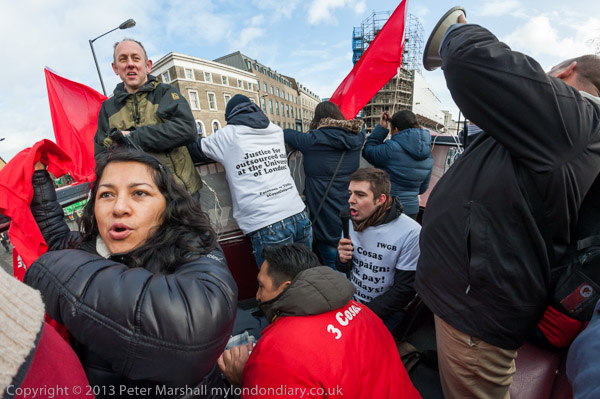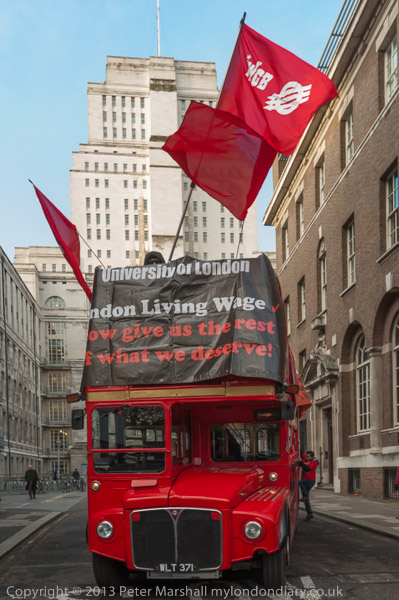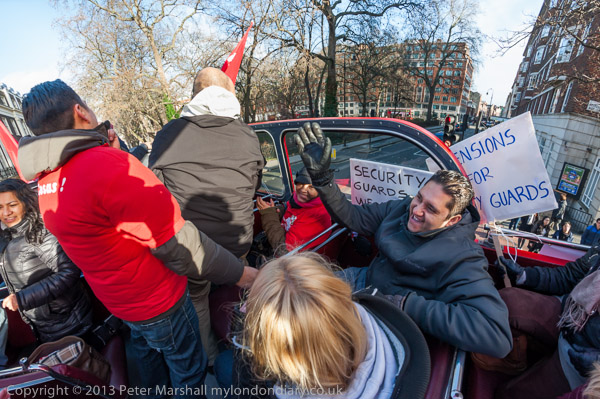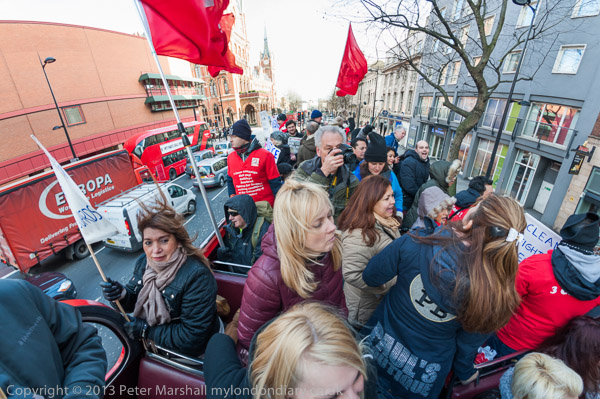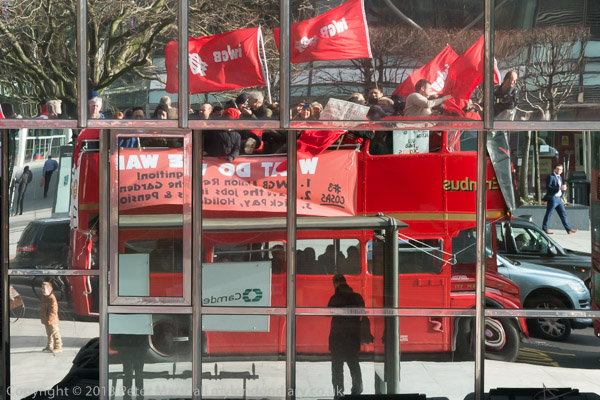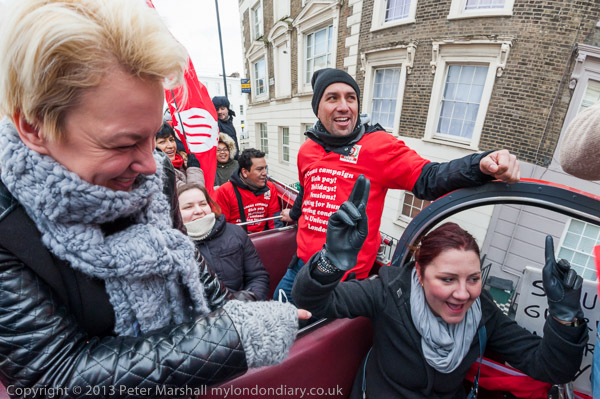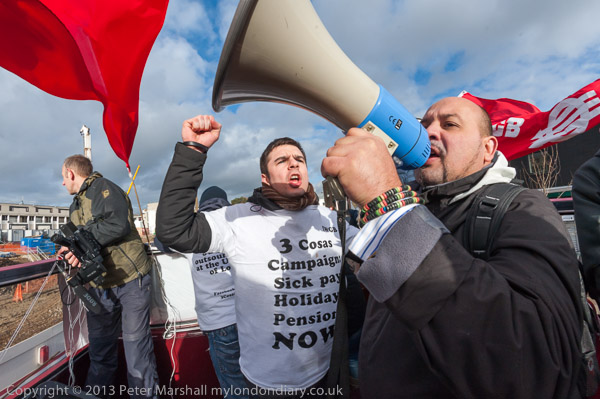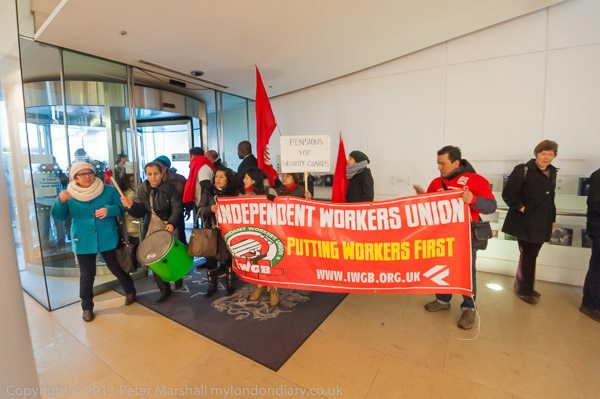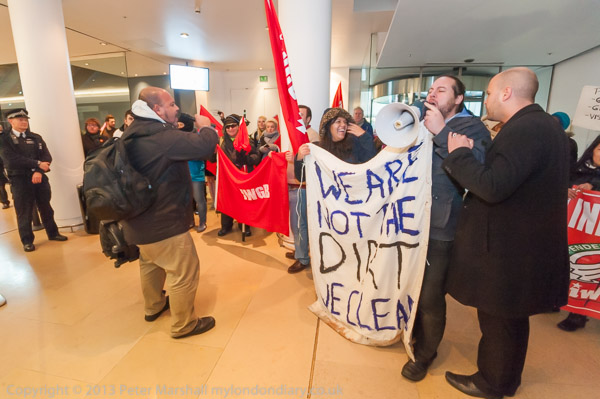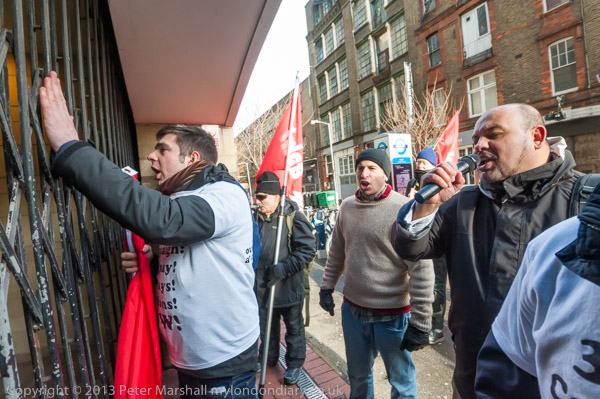UN Human Rights Day – On 10 December 1948 the 1948 the United Nations General Assembly adopted the Universal Declaration of Human Rights, and December 10th is now celebrated around the world as Human Rights Day.
The theme for the day in 2016 was ‘Stand up for someone’s rights today’ and there were a number of protests in London which did just that. This year will mark the 75th anniversary of the declaration and it seems unlikely that the UK government will be doing much celebration as it begins to try to push through a law to prevent asylum seekers from asserting their human rights.
Silent Chain for Europe – Old Palace Yard, Westminster
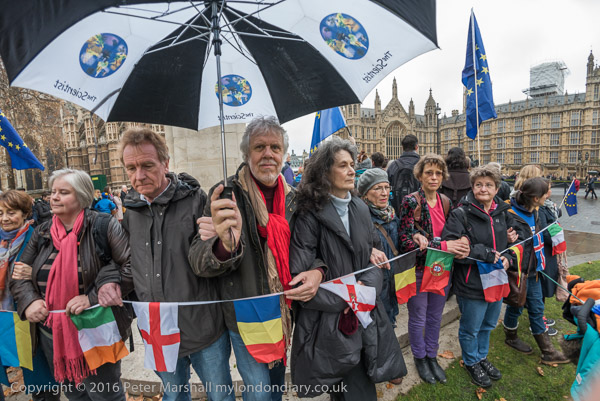
Campaigners linked arms in silent chains in protest opposite parliament and elsewhere in other towns and cities.
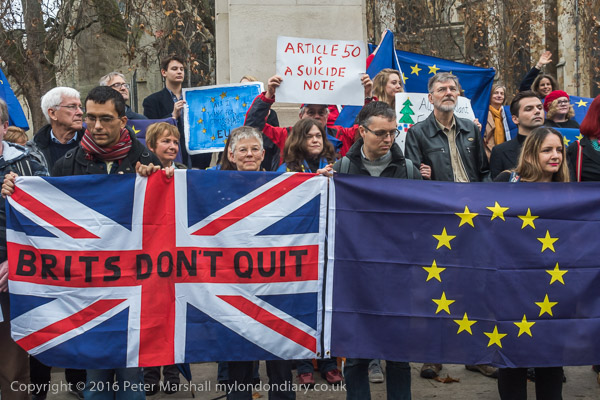
They say Brexit threatens our human rights including workers rights to paid holidays, maternity leave and fair treatment at work, the right of free movement around Europe, to live in the EU and for EU citizens to live here, disability rights and the right to freedom from discrimination.
More pictures at Silent Chain for Europe.
BBC censors prison struggles – Broadcasting House
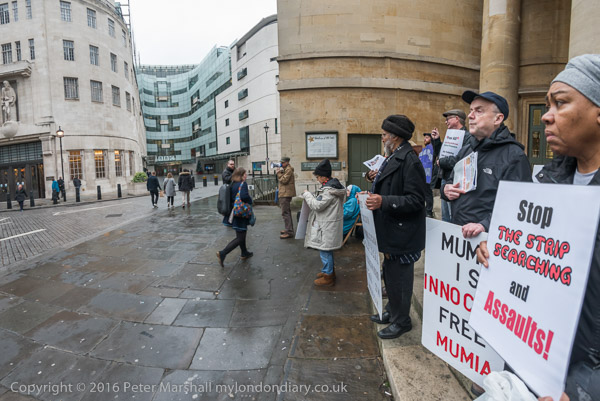
A Human Rights day protest outside the BBC highlighted the failure of the organisation to report on people wrongly held in prison in some countries around the world.
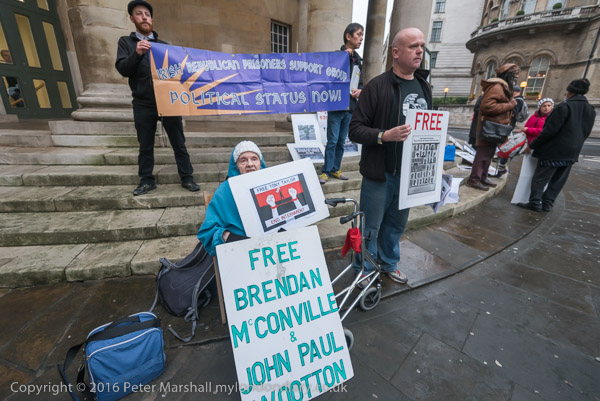
They say the BBC as an institution largely or totally ignores wrongful imprisonment in Northern Ireland, including the frame-up of the Craigavon 2 and the continuing internment of Tony Taylor for legal political activities.
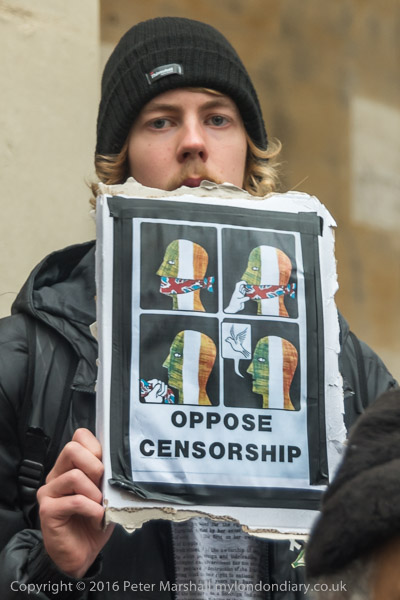
The Craigavon 2, John Paul Wootton and Brendan McConville, have been in prison since March 2009 and were convicted for the killing of police officer Stephen Carroll by a Diplock court without a jury on the basis of evidence which has been described as ludicrous. An appeal was dismissed in 2014 and at the start of 2023 Northern Ireland’s The Sunday Life newspaper revealed that MI5 had set up and operated what purported to be a human rights organisation but was actually working to subvert the campaign for their release.
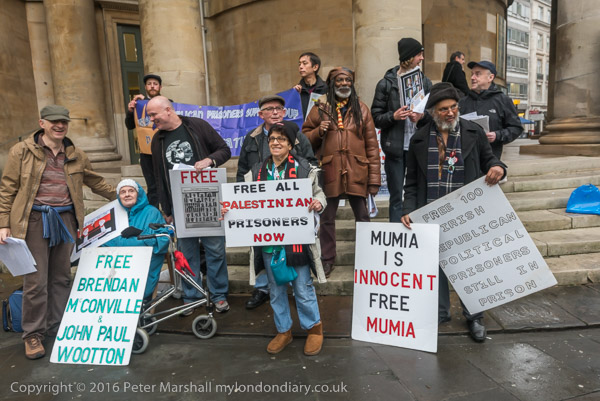
Other cases the say the BBC consistently fails to report include the imprisonment of Mumia Abu Jamal on Death Row in the USA, Palestinians held in Israeli jails and victims of Erdogan’s purge in Turkey.
Balochs UN Human Rights Day protest – Downing St
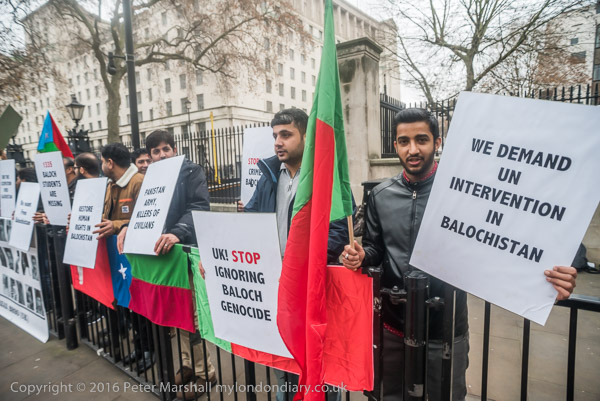
People from Balochistan in West Pakistan called on Theresa May to speak up for the Baloch people and their freedom against the Pakistan regime which they claim has a policy of genocide against the Baloch people and has killed thousands of Baloch activists and abducted more than 25,000 of them.
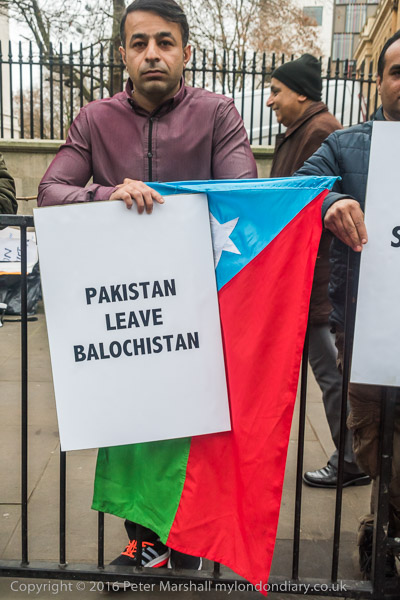
When Pakistan was set up in 1947, the kingdom of Balochistan became a part of it with some autonomy but a year later was merged with Pakistan. Since then various political and military separatists have emerged in the area which also includes part of neighbouring Iran.
Balochs UN Human Rights Day protest
Human Rights Day call close Guantanamo – Downing St
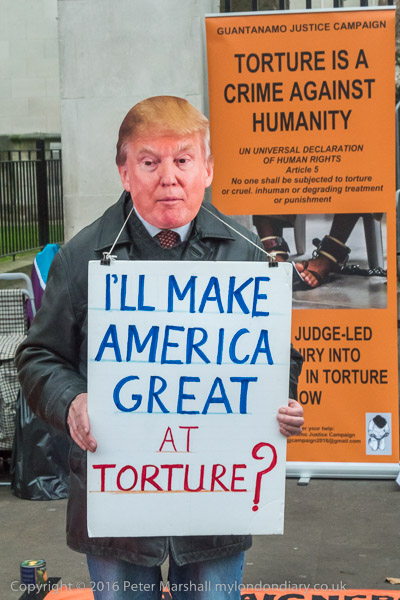
Also at Downing Street the Guantanamo Justice Campaign held a rally calling for an end to torture, the closure of Guantanamo and an end to British complicity in torture.
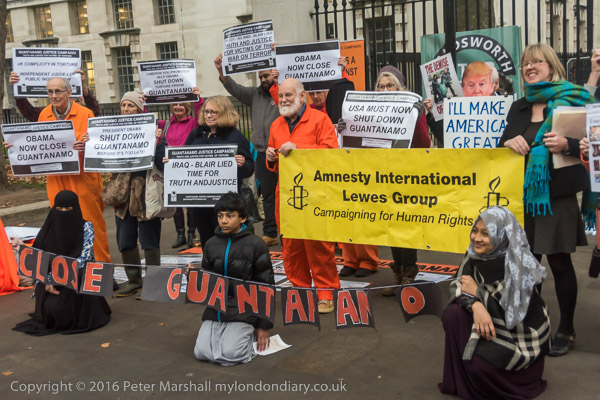
Speakers at the rally included Lewes Amnesty Group Chair Sara Birch, Journalist and writer Victoria Brittain and Stop the War convenor Lindsey German. Mizan the Poet gave an impressive performance of his poem ‘1984’ against the government’s anti-Muslim ‘Prevent’ counter extremism strategy.
More pictures at Human Rights Day call close Guantanamo
Save Yazidi women and girls – Westminster
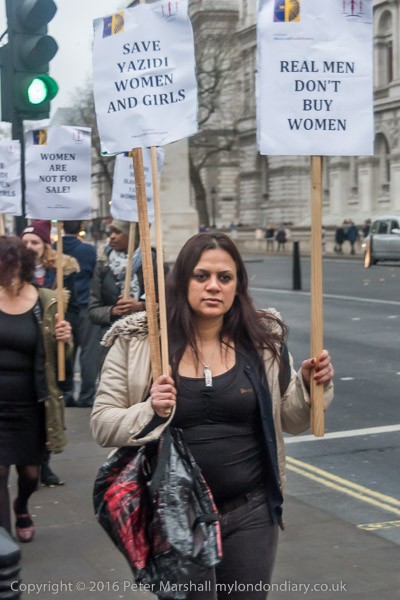
A small group of women protesters from WAVE (Women’s Action against Violent Extremism) held placards in Parliament Square before coming to protest at Downing St calling for help for the Yazidi women who were targeted and captured by ISIS (Da’esh) in Iraq.
ISIS regard the Yazidi as devil worshippers and subjected their women to physical and sexual violence, including systematic rape and sex slavery. The UN in 2014 reported that more than 5000 Yazidis had been murdered and 5-7,000 abducted. Over 3,400 are believed to be still held.
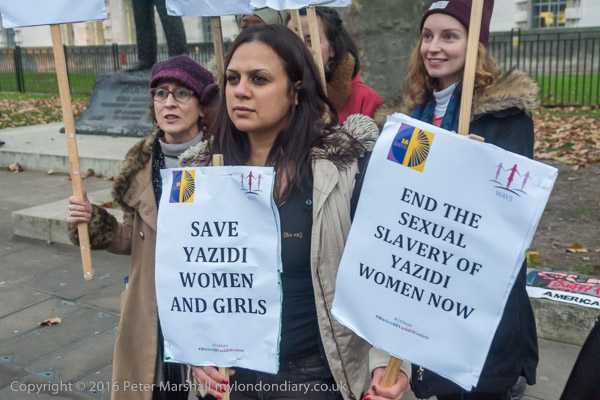
Although in 2014 the UK government in 2014 provided some emergency aid to those who escaped to a refugee camp, few if any have been given asylum here. The Independent reported in 2018 that “some Yazidis in the UK are having their asylum denied.” When SNP Brendan O’Hara asked a question in Parliament in 2022 on how many Yazidi refugees have been resettled in the UK since 2014 he was simply told that the Home Office keeps no records of the religious or ethnic background of refugees. Others put the figure at close to zero.
Not everything I photographed in London on 10th December was related to Human Rights Day. I also found a couple of rhinos and many more Santas. You can see them on My London Diary.
Save the Rhino
London Santacon 201
